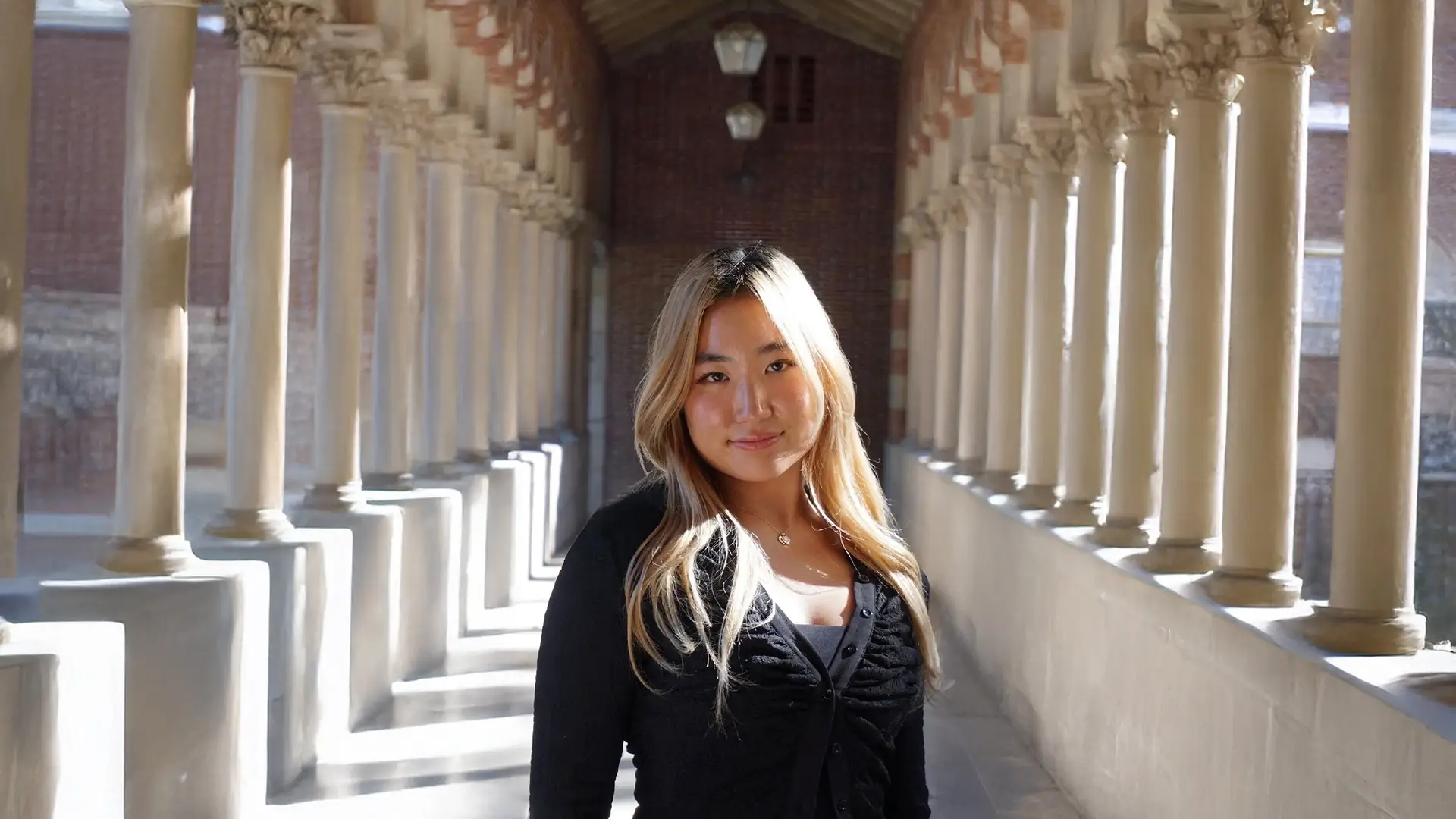Ella Park, Computer Science at Viterbi School of Engineering, USC; USC President’s High Tech Scholar; ICT intern 2025
As a Computer Science student at USC’s Viterbi School of Engineering, I’ve always been interested in how technology can solve real problems by creating tools that improve people’s well-being. This summer, I had the opportunity to take that passion further through an internship at the USC Institute for Creative Technologies (ICT), and it was one of the most formative experiences of my undergraduate journey so far.
My interest in ICT actually began before I even enrolled at USC. When I was researching the university, I came across ICT’s Mixed Reality Lab and was immediately intrigued by the creative, interdisciplinary nature of the work. That curiosity only deepened last summer, when I had the chance to tour ICT through the High Tech Scholars Program, a program specifically for transfer students pursuing a pathway in STEM. Seeing the project demos up close and hearing from the people behind them made me even more eager to be part of the team. Fast forward to this summer, I had the honor to be working with Dr. Benjamin Nye in ICT’s Learning Sciences group, helping develop tools for smarter, more personalized education.
Specifically, I contributed to a project focused on automating the generation of high-quality multiple choice questions for future use in educational technologies such as PAL3. While I came in with a solid foundation in programming, working with AI to build practical, instructionally grounded tools was a completely new challenge—one that pushed me to think differently about how software can support learning.
Luckily, I had the guidance of two cohorts of K–12 RESET teachers who provided invaluable feedback on my approach. Their insights inspired me to design a multi-agent architecture rooted in established educational taxonomies. This framework ensured that each question targeted a specific level of cognitive demand and that misconceptions could be identified and addressed through a Retrieval-Augmented Generation (RAG) system.
Working at ICT also gave me a deeper appreciation for the human side of technology. The people here aren’t just brilliant researchers—they’re collaborators and creatives. Some of the best advice I could give to future interns is simple: talk to people. Walk around. Start conversations. ICT is filled with people from wildly different disciplines, and they make everyday conversations unexpectedly eye-opening.
Beyond the lab, some of my favorite moments this summer were spent exploring the city with my fellow interns. Even though I’m from Los Angeles, I took the time to be a tourist in my own city—whether we were hiking on our lunch breaks, sharing a beachside potluck, barbecuing over Fourth of July weekend, or going for a round of golfing.
As I look ahead, my goal is to use technology to improve the way students learn and access education. Before studying computer science, I was volunteering to teach music to students—an experience that shaped how I think about learning, mentorship, and the challenges students face in and out of the classroom. It’s what drives my interest in building software that doesn’t just work—but that supports real learning, adapts to individual needs, and makes education more equitable.
This summer, I worked on a project that uses AI to generate high-quality multiple-choice questions for educational platforms. But more importantly, I learned how to design with intention—aligning tools with instructional frameworks, incorporating feedback from educators, and accounting for how students think and where they struggle. I want to keep building tools like that—software that meets learners where they are and helps them grow.
To anyone thinking about applying to ICT: I’d say do it! Be open to learning. Be curious. And be ready to stretch beyond what you thought you were capable of.
This summer helped me grow not only as a developer, but as an educator at heart. I’m leaving this experience more confident in my ability to build tools that support students, broaden access to education, and empower people in meaningful ways.
//
